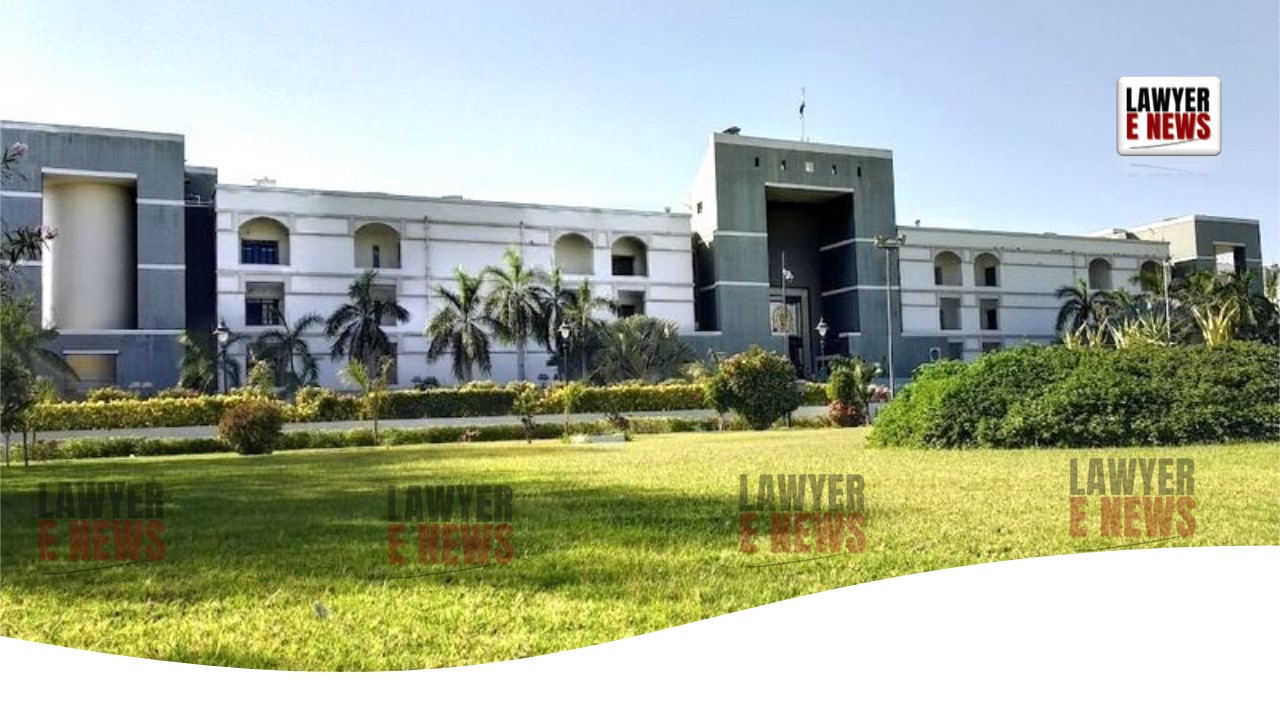-
by Admin
15 February 2026 5:35 AM



Gujarat High Court upheld the cancellation of a tender by Deendayal Port Authority on the grounds of ineligibility of bidders. The court ruled that the tendering authority, as the author of the tender, is best positioned to interpret the eligibility terms. The petition challenging the discharge of the tender was dismissed, with the court finding no evidence of arbitrariness or mala fides in the decision.
The case arose from the cancellation of a tender process floated by the Deendayal Port Authority for the supply of medicines to its beneficiaries. The tender, issued under Tender Notice No. MH/SP/127/2024-25, required bidders to have a minimum of five years' experience in owning and operating at least five functioning retail outlets of allopathic medicines under their name.
The petitioner, M/S Stork Medi-Tek Private Limited, claimed to have met the eligibility criteria and was declared the lowest bidder (L1). Subsequently, a "Letter of Intent" (LoI) was issued to the petitioner on August 5, 2024. However, upon further scrutiny and in response to complaints, the respondent authority found that the petitioner did not meet the eligibility criteria, as none of its retail outlets had been operational for a continuous five-year period.
On August 28, 2024, the competent authority approved the recommendation of the tender committee to discharge the tender, finding all bidders ineligible. The petitioner challenged the cancellation, alleging arbitrariness and procedural impropriety, and sought enforcement of the LoI as a binding contract under Article 226 of the Constitution.
The primary issue revolved around the interpretation of clause 4.1.2 of the Notice Inviting Tender (NIT), which required five years' experience of owning and operating at least five functioning retail outlets. The petitioner contended that it had sufficient experience, even if some outlets were not continuously operational for the entire five years. Conversely, the respondent authority maintained that the clause mandated continuous operation of each of the five outlets for five years.
"The employer, having authored the tender document, is the best person to understand and appreciate its requirements and interpret its terms. From a plain reading of clause 4.1.2, uninterrupted ownership and operation of at least five functioning outlets for a period of five years was the intended requirement." [Para 6.2]
The court also noted that the petitioner’s own documents, submitted in Form-8, revealed that none of its outlets had been operational for a continuous five-year period. The interpretation of the eligibility criteria by the respondent authority was found to be reasonable and consistent with the purpose of ensuring uninterrupted medicine supply.
The petitioner argued that the LoI issued on August 5, 2024, constituted a binding contract. The court rejected this claim, clarifying the distinction between the LoI under clause 31 (pre-acceptance of tender) and the notification of award under clause 32 of the NIT. The court held:
"An LoI issued under clause 31 is merely an intimation of the proposed pre-acceptance of the tender. It does not constitute a binding contract unless followed by a notification of award under clause 32, which requires issuance by the employer and compliance with other conditions such as furnishing performance security." [Para 6.7–6.8]
The court also noted irregularities in the issuance of the LoI, which was sent via the personal email address of the Chief Medical Officer (CMO) rather than the official email of the employer. Moreover, the required performance security was never furnished by the petitioner, and no formal contract agreement was executed.
The court emphasized that the tendering authority retained the right to cancel the bidding process under clause 30 of the NIT, which states:
"The employer reserves the right to accept or reject any bid and to cancel the bidding process and reject all bids at any time prior to the award of the contract, without assigning any reasons."
In the absence of mala fides, arbitrariness, or procedural impropriety, the court declined to interfere with the authority’s discretion to discharge the tender. It relied on the Supreme Court's ruling in Afcons Infrastructure Ltd. v. Nagpur Metro Rail Corporation Ltd. (2016) and M/S N.G. Projects Ltd. v. Vinod Kumar Jain (2022), which underscore the principle that constitutional courts must defer to the tendering authority's interpretation unless it is unreasonable or tainted by malice.
The court upheld the respondent's interpretation of clause 4.1.2, finding that the petitioner did not meet the requirement of owning and operating five retail outlets for a continuous five-year period.
"The respondent authority's interpretation of clause 4.1.2 is reasonable and consistent with the purpose of ensuring uninterrupted medicine supply." [Para 6.3]
The LoI issued to the petitioner under clause 31 did not constitute a binding contract, as it was not followed by the notification of award under clause 32.
"An LoI is merely an expression of interest to enter into a contract and does not grant any binding legal rights to the party to whom it is issued." [Para 6.13]
The decision to discharge the tender was based on the finding that none of the bidders met the eligibility criteria. The process was transparent and consistent with the terms of the NIT.
"The tendering authority acted within its discretion under clause 30, and the petitioner’s claims of arbitrariness are without merit." [Para 6.5]
The Gujarat High Court dismissed the petition, upholding the discharge of the tender as lawful and justified. The court reiterated the principle that tendering authorities are best placed to interpret their eligibility criteria and determine the suitability of bidders, provided their decisions are free from arbitrariness or mala fides.
Date of Decision: November 18, 2024
